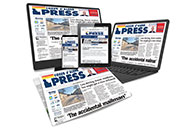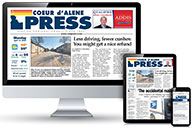Sholeh: What people with disabilities want you to know
What is and isn’t a disability is not a matter of debate. It is, however, a matter of perception when applied to social interactions. Such misperceptions are what disability awareness months are designed to correct.
July is Disability Pride Month. Originating in 1990 when Congress passed the Americans with Disabilities Act extending basic civil rights to people with disabilities, Disability Pride Month is a time for the disability community to embrace who they are and as they are, to reclaim visibility and uplift one another.
According to data collected by the Centers for Disease Control and annual American Community Surveys, 13-27% of Americans of all ages have some kind of disability. The wide range represents variances year by year, what types of disabilities are measured and what populations are included in statistics.
Become a Subscriber!
You have read all of your free articles this month. Select a plan below to start your subscription today.
Already a subscriber? Login



